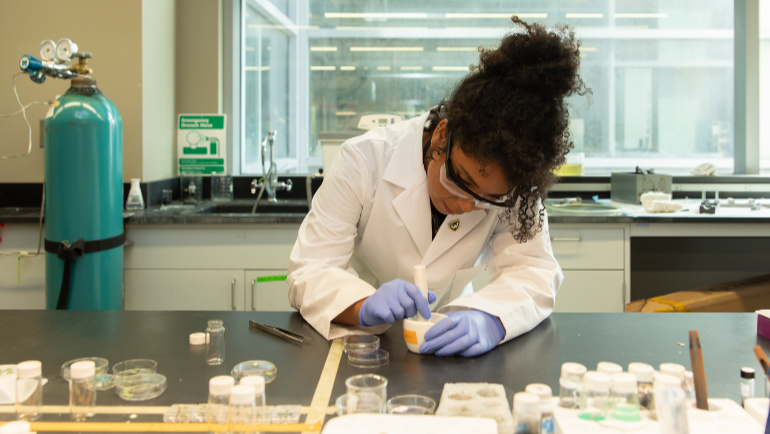
Engaging PhD students and postdoctoral fellows from all disciplines in comprehensive ethics training presents challenges. But it is important to ensure that students can function effectively in the multi-disciplinary teams in the workplace, according to a recently published Wayne State University Graduate School study in PLOS ONE.
In 2016, the Graduate School launched mandatory training for all PhD students and federally funded postdocs through a zero-credit course entitled “Essential Research Practices." The goal is three-fold: inculcate all students with an appreciation and knowledge of research ethics, help students understand ethical issues across a broad spectrum of fields, and prepare students for a workforce that values interdisciplinary teams and collaborations.
“Our paper describes the evolutionary process we used to design, evaluate and modify the training using a multi-disciplinary approach,” said Ambika Mathur, lead author, former dean of the WSU Graduate School and current dean of the Graduate School at the University of Texas at San Antonio. “We hope other universities can adopt this model given the efficiency and quality control of offering a university wide course, which also promotes a culture of rigor, reproducibility and ethics.”
The Graduate School’s training has three stages. First, students complete on-line training through the Collaborative Institutional Training Initiative (CITI) modules. Second, students attend a face-to-face workshop featuring faculty lectures followed by afternoon breakout sessions. The third stage takes place at the departmental level, and may include a course or one-on-one discussions with a faculty member or mentor.
Between September 2016 and September 2018, the course was offered five times and completed by 647 students and postdocs. After every course, the Graduate School sent students an optional survey and 278 students total have completed the survey. Of those respondents, 148 were STEM students, 95 were from the social sciences and education, and 35 were from the arts and humanities.
While the majority of the students reported learning from the class, students’ views of the overall course experience varied widely. Students in STEM programs found the course most useful, followed by social sciences and education. Arts and humanities students reported that the course was least meaningful to them.
“One size does not fit all, and addressing the specific needs of each discipline is still a work in progress,” said Mathur. “Information collected in the surveys has resulted in revised course content, use of discipline-relevant material and utilizing faculty from all departments.”
She concludes, “With careful design and continuous improvement, the needs of the students across the university are being met, while we promote the value of ethical research, especially in the growing landscape of interdisciplinary research and scholarship.”
Other members of the research team, included Sharon F. Lean, associate dean for student success, Graduate School; Caroline Maun, chair, Department of English; Natalie Walker, application specialist II, Graduate School and master’s candidate in the School of Information Sciences; Annmarie Cano, associate provost for faculty development and faculty success, Office of the Provost; and Mary E. Wood, program director, Graduate School.
